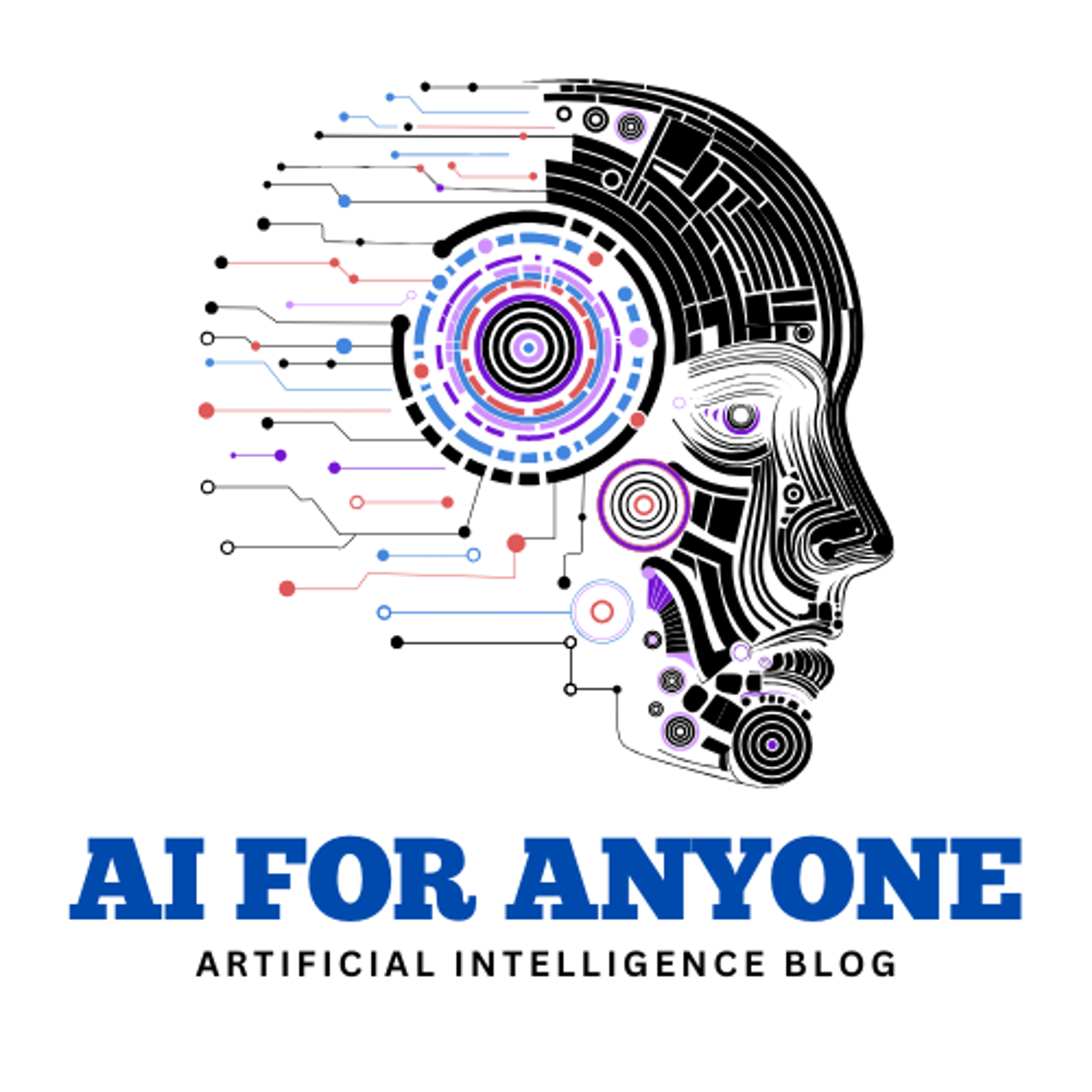Exploring the Latest AI Tools and Trends: 10 Innovations to Watch
In today's fast-paced digital landscape, leveraging artificial intelligence tools can significantly enhance productivity and creativity. These innovative solutions are designed to streamline processes, automate repetitive tasks, and generate insightful data analyses, making them essential for both individuals and businesses alike. Whether you're looking to optimize your workflow, create engaging content, or gain deeper insights into consumer behavior, there are various AI tools available to meet your specific needs. From natural language processing to machine learning algorithms, these technologies are transforming how we work and interact with information. As AI continues to evolve, staying updated on the latest tools can empower you to remain competitive and efficient in your endeavors. Embrace the future of work with short, powerful AI tools that can propel your projects to new heights.
2/10/20255 min read


Introduction to AI Tools and Trends
Artificial intelligence (AI) has rapidly evolved, becoming integral to our technological landscape. The significance of AI tools and trends cannot be overstated, as they continue to shape various industries and transform how we work and live. With advancements occurring at an unprecedented pace, keeping abreast of the latest developments in AI is crucial for professionals and organizations alike.
The realm of AI tools encompasses a vast array of applications, from machine learning algorithms that predict consumer behavior to natural language processing systems that enhance customer interactions. Sectors such as healthcare, finance, education, and manufacturing have witnessed significant improvements due to these innovations, enabling more efficient operations, decision-making, and personalized services. As a result, businesses that leverage AI technologies can gain a competitive edge in their respective markets.
In our current digital age, AI trends are important because they drive innovation and societal change. Staying informed about these trends allows businesses to adapt to the evolving landscape and meet consumer expectations effectively. Moreover, understanding the latest AI tools can facilitate the development of more robust strategies for integrating AI into existing workflows, ultimately leading to enhanced productivity and effectiveness.
This blog post aims to provide a comprehensive overview of ten specific AI tools and trends set to define the future of technology. Readers can expect in-depth discussions on each trend and insights into how they can leverage these innovations in their fields. By exploring these developments, professionals can maintain their relevance and enhance their understanding of AI's transformative potential for the future.
Top 10 AI Tools Transforming Industries
The rapid evolution of artificial intelligence has led to the emergence of numerous tools that are transforming various industries. Here, we highlight ten innovative AI tools that have garnered attention for their unique features and applications. These tools enhance productivity, streamline operations, and augment decision-making across sectors.
1. TensorFlow: This open-source machine learning framework developed by Google is widely used for building deep learning models. TensorFlow’s flexibility allows developers to create simple and complex neural networks, making it a preferred choice for researchers and industry professionals.
2. PyTorch: Known for its dynamic computation graph and ease of use, PyTorch has gained popularity in the research community and is making strides in commercial applications. Its ability to provide immediate feedback during model training has made it invaluable for prototyping AI concepts.
3. NLTK (Natural Language Toolkit): Used extensively for natural language processing tasks, NLTK provides tools to work with human language data. From tokenization to parsing, this library helps develop applications that can understand human language, such as chatbots and sentiment analysis systems.
4. H2O.ai: This platform offers open-source machine learning tools for predictive analytics. H2O.ai empowers users to build machine learning models quickly, catering to sectors like finance, healthcare, and marketing for data-driven decision-making.
5. SAS Viya: Renowned for its capabilities in advanced analytics, SAS Viya integrates AI and machine learning for improved data analytics. Its cloud-native architecture provides organizations with scalable solutions that optimize their data processing pipelines.
6. OpenAI GPT-3: As a state-of-the-art language processing AI model, GPT-3 can generate human-like text and understand the context within conversations. It is widely adopted in applications ranging from content creation to customer service.
7. IBM Watson: IBM's Watson is a suite of AI tools that provides advanced data analytics, machine learning, and Natural Language Processing capabilities. Various industries utilize Watson to make insights-driven decisions across multiple datasets.
8. Clarifai: Focused on computer vision, Clarifai offers deep learning solutions that enable image and video analysis. Its applications range from security systems to content moderation, showcasing its extensive use across sectors.
9. Tableau: While primarily a visualization tool, Tableau incorporates AI features that enhance data insights, enabling users to uncover trends and patterns that support strategic decisions.
10. Salesforce Einstein: This AI-powered feature integrated into Salesforce platforms provides analytical capabilities that improve customer relationship management by offering personalized marketing and sales strategies.
These ten tools represent just a fraction of the advancements in AI that are reshaping industries. Their real-world applications continue to expand, illustrating the broad potential of artificial intelligence across different domains.
Emerging Trends in Artificial Intelligence
Artificial intelligence (AI) is rapidly evolving and characterized by emerging trends that represent technological advancements and bring significant implications for businesses and consumers alike. One notable trend is the development of ethical AI frameworks. As the awareness of AI's potential biases and ethical implications grows, there is an increasing emphasis on creating systems prioritizing fairness, accountability, and transparency. These frameworks ensure that AI applications are guided by ethical principles, fostering public trust.
Another key trend is the increased automation of processes across various industries. Organizations are integrating AI solutions to enhance operational efficiency and optimize productivity. This shift towards automation streamlines tasks and allows companies to allocate human resources toward more strategic activities. While this trend presents numerous advantages, it also raises questions about job displacement and the need for reskilling in the workforce.
The proliferation of AI in everyday applications is also a noteworthy trend. AI technologies are becoming ingrained in daily life, from personal assistants to smart home devices. This accessibility to AI-driven tools signifies a democratization of technology, allowing a broader range of users to harness AI capabilities without extensive technical knowledge. Furthermore, this trend supports businesses in delivering enhanced customer experiences, as AI systems can analyze user preferences and provide personalized recommendations.
Additionally, the impact of AI on employment and skills development is a critical consideration. As AI transforms industries, there is a growing demand for a workforce skilled in AI technologies. Companies recognize the necessity of investing in training programs, ensuring employees are equipped with the tools to navigate the evolving work landscape. Collectively, these trends are instrumental in shaping the future of AI, influencing how it will integrate into various sectors and society at large.
Conclusion and Future Outlook
As we have explored throughout this blog post, the landscape of artificial intelligence (AI) is marked by remarkable innovations and dynamic trends transforming various sectors. The advancements discussed highlight the efficacy of new tools designed to enhance productivity, streamline processes, and improve industry decision-making capabilities. Embracing these technological developments is not just an option; it has become necessary for organizations aiming to maintain a competitive edge in today's rapidly evolving market.
While we celebrate the benefits brought by AI tools, it is also essential to consider the potential challenges that may arise. Ethical considerations, data privacy issues, and the need for regulatory frameworks are topics that demand attention as AI integration becomes more prevalent. Ensuring responsible usage and addressing these challenges will be critical in shaping a future where AI is a positive force for societal development.
Looking ahead, the trajectory of AI technology appears promising, with several anticipated trends on the horizon. We expect significant advancements in machine learning, natural language processing, and automation. These innovations will pave the way for enhanced applications that optimize business operations and improve user experiences. Organizations willing to adapt and innovate will likely find themselves well-positioned to harness the full potential of AI.
In conclusion, the future of AI is bright, with opportunities for growth, creativity, and influence across numerous fields. Individuals and organizations must remain informed about emerging tools and trends to leverage AI's full potential. By actively engaging with these developments, stakeholders can utilize AI to enhance their operations and drive innovation forward, ultimately leading to a more efficient and advanced technological landscape.
